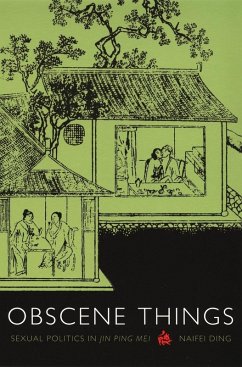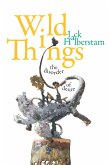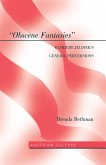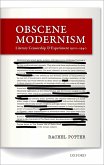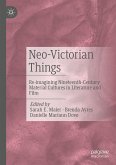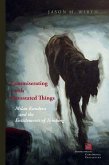In Obscene Things Naifei Ding intervenes in conventional readings of Jin Ping Mei, an early scandalous Chinese novel of sexuality and sexual culture. After first appearing around 1590, Jin Ping Mei was circulated among some of China's best known writers of the time and subsequently was published in three major recensions. A 1695 version by Zhang Zhupo became the most widely read and it is this text in particular on which Ding focuses. Challenging the preconceptions of earlier scholarship, she highlights the fundamental misogyny inherent in Jin Ping Mei and demonstrates how traditional biases-particularly masculine biases-continue to inform the concerns of modern criticism and sexual politics.The story of a seductive bondmaid-concubine, sexual opportunism, domestic intrigue, adultery and death, Jin Ping Mei has often been critiqued based on the coherence of the text itself. Concentrating instead on the processes of reading and on the social meaning of this novel, Ding looks at the various ways the tale has been received since its first dissemination, particularly by critiquing the interpretations offered by seventeenth-century Ming literati and by twentieth-century scholars. Confronting the gender politics of this "e;pornographic"e; text, she troubles the boundaries between premodern and modern readings by engaging residual and emergent Chinese gender and hierarchic ideologies.
Dieser Download kann aus rechtlichen Gründen nur mit Rechnungsadresse in A, B, BG, CY, CZ, D, DK, EW, E, FIN, F, GR, HR, H, IRL, I, LT, L, LR, M, NL, PL, P, R, S, SLO, SK ausgeliefert werden.

